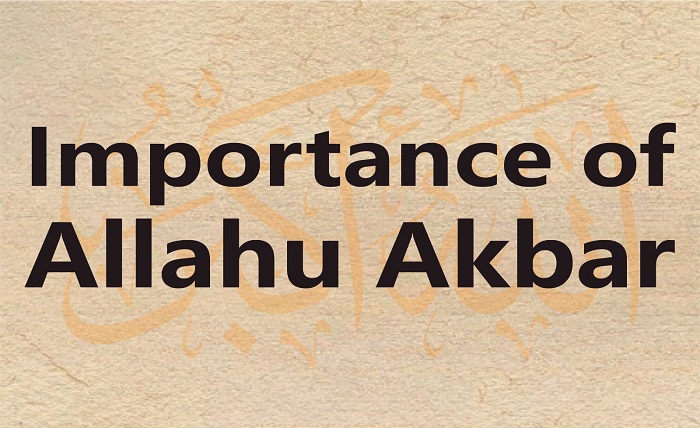Beyond the Echo: Unveiling the Depth of Allahu Akbar

The phrase “Allahu Akbar” reverberates through history, echoing from towering minarets across continents and whispered in quiet devotions. It’s a declaration of faith, a rallying cry, a universal prayer understood by Muslims worldwide. But for many outside the faith, it remains shrouded in mystery, often reduced to a sensationalized sound bite in news headlines.
In this article, we delve beyond the surface, venturing into the rich tapestry of meaning woven into “Allahu Akbar.” We’ll explore its historical context, linguistic nuances, and diverse interpretations within the Muslim world. We’ll break down the barriers of misconception and discover the profound message at its core, one that transcends cultural and religious boundaries.
From the Depths of Time: A Historical Journey
Our journey begins in the heart of the Arabian Peninsula, amidst the sands of 7th century Mecca. Prophet Muhammad (ﷺ) received the first revelations of the Quran, marking the birth of Islam. “Allahu Akbar” served as a potent declaration of divine monotheism, a stark contrast to the polytheism prevalent at the time. It proclaimed the absolute oneness of God, Allah, dwarfing all other idols and deities.
The phrase resonated with early Muslims. It fueled their defiance against persecution, providing solace and unwavering faith in the face of adversity. As Islam spread, “Allahu Akbar” accompanied their conquests, not as a battle cry, but as a reminder of the ultimate power they served. It was not about subjugating others, but about submitting to the will of a higher being.
Throughout history, “Allahu Akbar” has marked pivotal moments in the Muslim world. From the triumphs of Islamic Golden Age scholars to the resilience of communities overcoming challenges, the phrase has served as a constant thread, weaving together generations.
Unveiling the Layers: A Linguistic Exploration
Beyond its historical significance, “Allahu Akbar” holds inherent beauty within its very structure. The Arabic word “Allah” signifies the one and only God, the Supreme Being worthy of all worship. “Akbar” is the superlative form of “kabir,” meaning “great” or “greatest.” Therefore, the phrase translates to “God is the Greatest.”
However, a literal translation doesn’t capture the full essence. “Allahu Akbar” isn’t merely a statement of fact; it’s an active declaration, a constant affirmation of God’s supremacy in every aspect of life. It acknowledges the limitations of human existence and places ultimate trust in a divine power.
The phrase carries multiple interpretations within the Muslim world. For some, it’s a daily reminder of God’s presence in every breath, every sunrise, every challenge overcome. For others, it’s a powerful expression of gratitude for divine blessings. In times of hardship, it becomes a beacon of hope, a mantra to endure and trust in God’s ultimate plan.
Beyond the Stereotypes: Reclaiming the Narrative
Unfortunately, “Allahu Akbar” has often been misconstrued in the mainstream narrative. Sensationalized media portrayals have associated it with extremism and violence, painting a distorted picture of Islam and its followers. We must remember that the vast majority of Muslims associate this phrase with peace, hope, and unwavering faith.
It’s crucial to move beyond the stereotypes and reclaim the true essence of “Allahu Akbar.” By understanding its historical context, linguistic nuances, and diverse interpretations, we can foster meaningful dialogue and bridge the gap between communities.
Conclusion:
“Allahu Akbar” transcends religious boundaries. It’s a human expression of awe and humility before the vastness of the universe, a recognition of the interconnectedness of all beings. It’s a reminder that regardless of our beliefs or backgrounds, we share a common ground in our search for meaning and purpose.
In a world grappling with division and conflict, “Allahu Akbar” can serve as a unifying force. Let us move beyond the echo, beyond the misconceptions, and delve into the depth of this powerful phrase. For within its essence lies a message of hope, resilience, and unwavering faith, one that resonates with the human spirit at its core.




